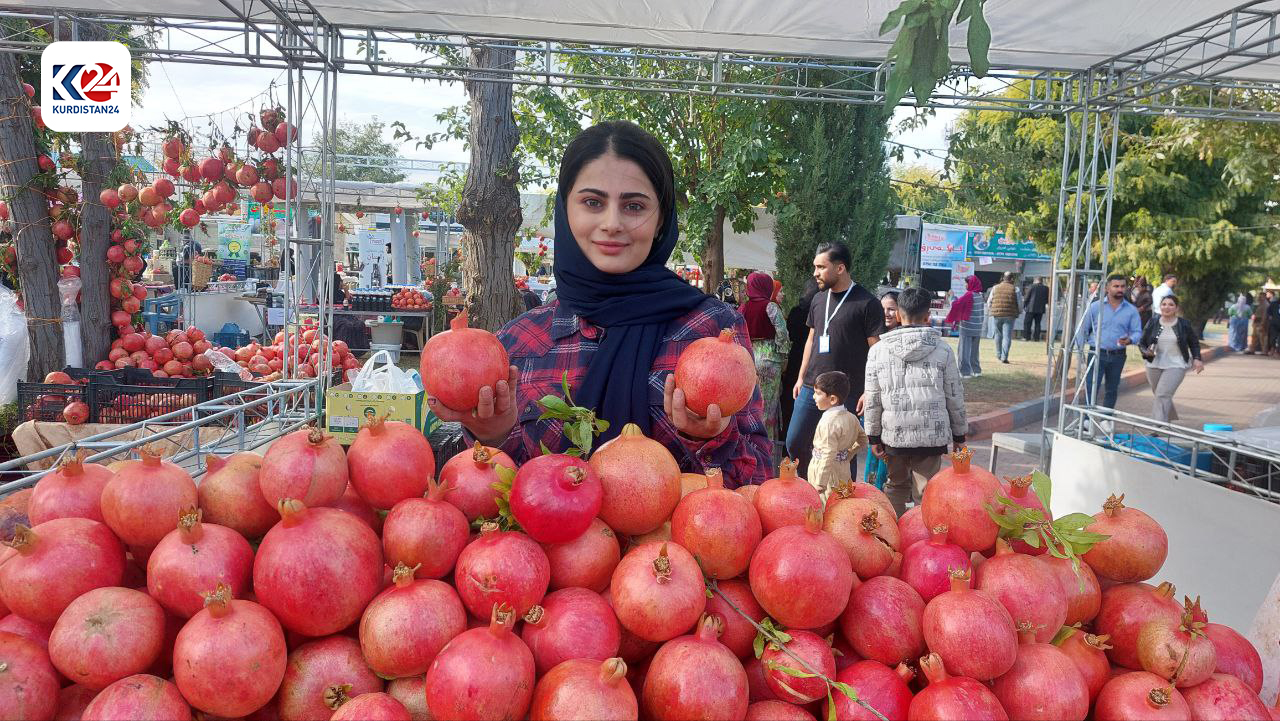Kurdistan Region Tourism Board Prepares for Golden Autumn Season as Visitor Numbers Surge
From the Halabja Pomegranate Festival to breathtaking mountain escapes, Kurdistan is ready to welcome thousands of tourists this fall.

ERBIL (Kurdistan24) — The Kurdistan Region’s Tourism Board has begun preparations to welcome an expected influx of visitors during the autumn season, as rising temperatures across central and southern Iraq continue to drive tourists northward to the Region’s cooler mountains and valleys.
Speaking to Kurdistan24, Ibrahim Abdulmajid, spokesperson for the Tourism Board, described this summer as a “golden season” for Kurdistan’s tourism sector. “As temperatures soar in the rest of Iraq, more and more tourists are visiting Kurdistan’s resorts and natural attractions,” he said, adding that the Region is now entering a stage of “semi-year-round tourism.”
Abdulmajid explained that "in the past, Kurdistan’s tourism industry was largely limited to a single peak season, but continuous investment, the development of new attractions, and the hosting of cultural festivals have extended tourism across all four seasons."
Autumn Festivals and Cultural Highlights
Among the key highlights of the autumn calendar is the Halabja Pomegranate Festival, scheduled for early November. The annual event has become one of Kurdistan’s signature cultural showcases, drawing both domestic and international visitors.
“This festival has grown into an important opportunity to promote Halabja’s renowned pomegranates and to further boost tourism in the province,” Abdulmajid noted. In the 10th edition of the festival alone, over 285,000 visitors traveled to Halabja, underscoring the event’s growing appeal.
Government Support and Strategic Vision
The KRG’s Ninth Cabinet, led by Prime Minister Masrour Barzani, has prioritized the tourism sector as a key pillar of economic diversification. In line with this vision, the Tourism Board has developed an eight-year strategic plan aiming to attract 20 million visitors annually by 2030.
“Prime Minister Barzani has placed special emphasis on developing the tourism sector,” Abdulmajid said. “According to the eight-year plan, we have already completed several phases of infrastructure development, and now Kurdistan is entering its golden era for tourism.”
Toward a Sustainable Tourism Future
While official visitor statistics for 2024 have not yet been released, Abdulmajid acknowledged the need for a more systematic and modern approach to data collection and reporting to better track the sector’s growth.
The Kurdistan Region, with its rugged mountains, rich cultural heritage, and vibrant festivals, has increasingly positioned itself as a safe and attractive alternative for regional tourism. The autumn season, with its cooler climate and colorful landscapes, is now expected to mark another high point in Kurdistan’s evolving tourism story.
